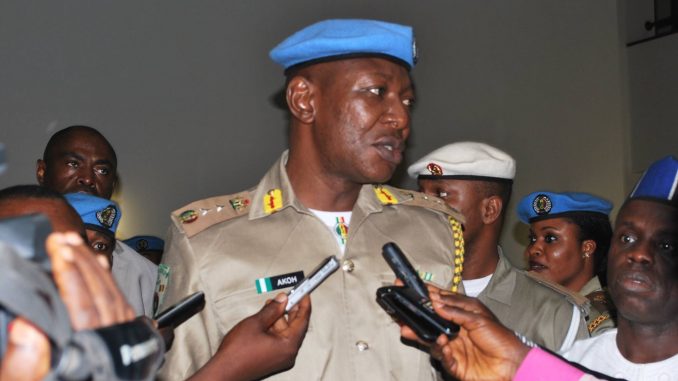Peace Corps bill finally dead, as Reps failed to override Buhari

Efforts of sponsors and supporters of the Nigerian Peace Corps Bill to ensure its passage finally came to none on Thursday as the Yakubu Dogara-led House of Representatives, which had boasted that it would override the veto of President Muhammadu Buhari on it, failed to scale through.
Lawmakers, who argued on the side of the President, said as commander-in-chief, experienced and retired Army General, that Buhari sees far beyond the legislators regarding the issues of funding and security he raised as reason for his recent veto and therefore overwhelmingly prevailed on those in support of the bill thereby finally pushing it to a permanent rest.

The bill seeks to turn the Peace Corps, currently a non-governmental organisation, into a government para-military agency just like the Nigerian Security and Civil Defence Corps.
But those against the proposal said if such would happen, it meant that the security outfits in the country would become polarized and therefore urged that colleagues better encourage the Executive to improve and strengthen the existing security forces and the armed forces and take more people in ensuring adequate protection, internally and externally, for the nation and its citizens.
The bill, which was passed by the National Assembly amidst controversy was rejected by President Muhammadu Buhari, who refused to sign it into law.
Buhari in February refused to assent to the bill because it was a duplication of duty and could conflict with the functions of the existing security outfits – the police and the Nigeria Security and Civil Defence Corps (NSCDC).
At the House plenary transmitted live on the NTA Thursday covered in Lagos by The DEFENDER, the bill, sponsored by Emmanuel Orker-Jev (APC, Benue) and passed by the National Assembly in 2017, failed to pass the second reading at the House of Representatives.
In separate letters to the Senate and House of Representatives, Mr Buhari also cited security concerns and financial implications amongst reasons for his decision.
The bill was transmitted to the president in December 2017 by the Clerk to the National Assembly, Sani Omolori.
The Nigerian police had remained opposed to the legalisation of the corps.
On February 17, 2017, it stormed the organisation’s headquarters in Abuja and arrested its head, Dickson Akoh, and about 49 other members.
The police accused Mr. Akoh of using the Peace Corps, registered as a non-governmental organisation, to swindle young job seekers and operate as a para-military agency.
Mr. Akoh, who denied the allegations, was later granted bail.








